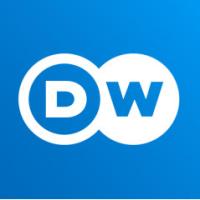
US Secretary of State Antony Blinken met Chinese President Xi Jinping in Beijing on the last day of his China tour on April 26 where he stressed it was important to responsibly manage bilateral relations.
“We are committed to maintaining and strengthening lines of communication to advance that agenda, and again deal responsibly with our differences so we avoid any miscommunications, any misperceptions, any miscalculations,” Blinken said at a news conference.
According to Chinese state broadcaster CCTV, Xi told Blinken the two “countries should be partners, not rivals.”
“There are still a number of issues that need to be resolved, and there is still room for further efforts,” CCTV cited the Chinese leader as having told Blinken.
“We hope the US can also take a positive view of China’s development,” Xi said, adding: “When this fundamental problem is solved… relations can truly stabilize, get better, and move forward.”
Blinken’s talks with Xi followed a five-and-a-half hour discussion with Chinese Foreign Minister Wang Yi on a number of contentious issues earlier in the day.
Blinken says essential trade practices proceed ‘fairly’
With China and the US competing on economic and tech fronts, Blinken said it was important to ensure healthy competition between the two.
China is responsible for 1/3rd of global production but 1/10th of global demand so there’s a mismatch, Blinken said during a news conference at the end of his tour. Chinese goods are sold for lower prices and that’s something the US “stands against,” he said.
China’s multibillion-dollar trade surplus with the US along with accusations of intellectual property theft have long been a source of friction in relations between the countries.
It’s not just a US concern, but also one of European partners, Blinken said, adding: “It is not about containing China or cutting off trade and investment.” It is about making sure trading practices proceed “fairly.”
On China’s support for Russia’s defense base, Blinken said he was “extremely” clear in concerns during his visit and that China has demonstrated in the past that it can take positive action.
“It is now absolutely critical” that China stops supporting Russia as it has been, Blinken said. The support is not just in terms of arms, but also machines and other defense tools, which is working against the Ukrainian goal to beat back Russia forces.
European partners are equally wary about the situation, Blinken said, later adding: “Russia would struggle to sustain its assault on Ukraine without China’s support.”
More generally, Blinken sounded a positive note on recent progress made in bilateral cooperation, including in military communications, counternarcotics and artificial intelligence.
Blinken meets Wang Yi
Earlier in the day, meeting at the Diaoyutai state guesthouse in Beijing’s ancient gardens, Wang said ties between the two countries were “beginning to stabilise.”
Wang also added that differences between the countries persist and continue to grow, making talks more difficult.
“But at the same time, the negative factors in the relationship are still increasing and building and the relationship is facing all kinds of disruptions,” Wang said.
Relations have improved the last year but still ‘fragile’
DW correspondent Fabian Kretschmer explained that the relationship was “fragile” given the two countries continue to compete on trade and tech fronts.
Still, relations have improved since early last year when the US government accused China of trying to collect sensitive information by flying an alleged spy balloon over US airspace, Kretschmer said.
Blinken discussed concerns about “PRC support to the Russian defense industrial base” as well as Taiwan, the South China Sea and the situation in Middle East, State Department spokesman Matthew Miller said.
This article first appeared on DW.






